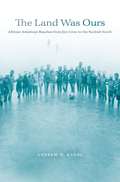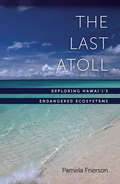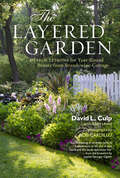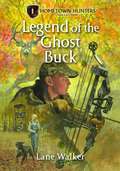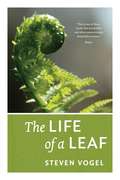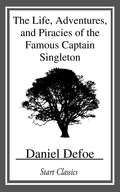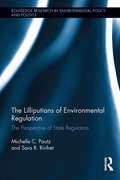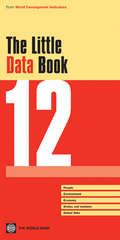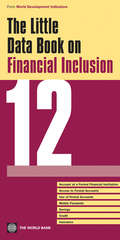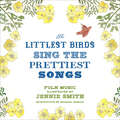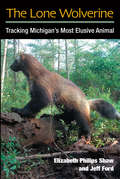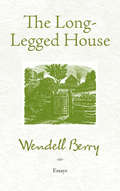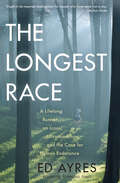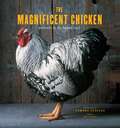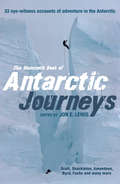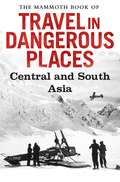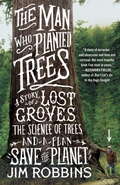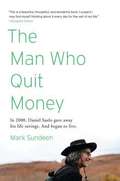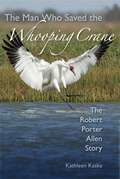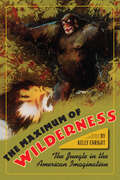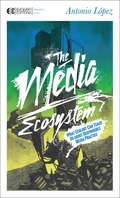- Table View
- List View
The Land Was Ours
by Andrew W. KahrlDriving along the coasts of the American South, we see miles of luxury condominiums, timeshare resorts, and gated communities. Yet, a century ago, a surprising amount of beachfront property in the Chesapeake, along the Carolina shore, and around the Gulf of Mexico was owned and populated by African Americans. In a pathbreaking combination of social and environmental history, Andrew W. Kahrl shows how the rise and fall of Jim Crow and the growing prosperity of the Sunbelt have transformed both communities and ecosystems along the southern seaboard. Kahrl traces the history of these dynamic coastlines in all their incarnations, from unimproved marshlands to segregated beaches, from exclusive resorts for the black elite to campgrounds for religious revival. His careful reconstruction of African American life, labor, and leisure in small oceanside communities reveals the variety of ways African Americans pursued freedom and mobility through the land under their feet. "The Land Was Ours" makes unexpected connections between two seemingly diverse topics: African Americans' struggles for economic empowerment and the ecology of coastal lands. Kahrl's innovative approach allows him fresh insights into the rise of African American consumers and the widespread campaigns to dispossess blacks of their property. His skillful portrayal of African American landowners and real-estate developers rescues the stories of these architects of the southern landscape from historical neglect. Ultimately, Kahrl offers readers a thoughtful, judicious appraisal of the ambiguous legacy of racial progress in the Sunbelt.
The Last Atoll
by Pamela FriersonThe Last Atoll is a first-person account of journalist Pamela Frierson's ten-year exploration of the exotic and ecologically significant small lands at the far northwestern end of the Hawaiian island chain. Frierson takes readers on a rare journey to eight of these remote and ancient islands, including the Kure Atoll, the oldest Hawa'i'ian island and the northernmost atoll in the world. In her 1,200-mile travels, Frierson discovers isolated landscapes, undisturbed ecosystems, and a nearly forgotten but well-preserved human history. It is a rich history of discovery by explorers and pirates, plus extensive military use. Frierson finds a vast wilderness, including the remnants of ancient volcanoes, and unique species of wildlife. She also explores the islands' location in the Great Pacific Garbage Patch, a major current that washes up the world's garbage. A lifelong resident of Hawai'i, Frierson draws broad conclusions relating to islands and their "canary in a coal mine" role.
The Last Atoll
by Pamela FriersonThe Last Atoll is a first-person account of journalist Pamela Frierson's ten-year exploration of the exotic and ecologically significant small lands at the far northwestern end of the Hawaiian island chain. Frierson takes readers on a rare journey to eight of these remote and ancient islands, including the Kure Atoll, the oldest Hawa'i'ian island and the northernmost atoll in the world. In her 1,200-mile travels, Frierson discovers isolated landscapes, undisturbed ecosystems, and a nearly forgotten but well-preserved human history. It is a rich history of discovery by explorers and pirates, plus extensive military use. Frierson finds a vast wilderness, including the remnants of ancient volcanoes, and unique species of wildlife. She also explores the islands' location in the Great Pacific Garbage Patch, a major current that washes up the world's garbage. A lifelong resident of Hawai'i, Frierson draws broad conclusions relating to islands and their "canary in a coal mine" role.
The Lavender Lover's Handbook: The 100 Most Beautiful and Fragrant Varieties for Growing, Crafting, and Cooking
by Sarah Berringer Bader Janet Loughrey“I think it pisses God off when you walk by the color purple in a field somewhere and don’t notice it.” —Alice WalkerThe Lavender Lover's Handbook provides a complete checklist of the color, fragrance, size, and foliage of the 100 easiest, most stunning lavenders available today. In addition to details about spacing, planting, pruning, Sarah Berringer Bader offers tips to harvest, cook, and craft with this wonderful herb. The abundant variety, hardiness, fragrance, and culinary opportunities make lavender one of the most popular and versatile plants, and with this practical and accessible guide, it's easier than ever to grow lush lavender at home.
The Layered Garden: Design Lessons for Year-Round Beauty from Brandywine Cottage
by Rob Cardillo David L. Culp Adam Levine“Gardenmaking, in its finest form, is a celebration of life and of love. David and his book epitomize this.” —Lauren Springer Ogden Brandywine Cottage is David Culp's beloved two-acre Pennsylvania garden where he mastered the design technique of layering—interplanting many different species in the same area so that as one plant passes its peak, another takes over. The result is a nonstop parade of color that begins with a tapestry of heirloom daffodils and hellebores in spring and ends with a jewel-like blend of Asian wildflowers at the onset of winter.The Layered Garden shows you how to recreate Culp's majestic display. It starts with a basic lesson in layering—how to choose the correct plants by understanding how they grow and change throughout the seasons, how to design a layered garden, and how to maintain it. To illustrate how layering works, Culp takes you on a personal tour through each part of his celebrated garden: the woodland garden, the perennial border, the kitchen garden, the shrubbery, and the walled garden. The book culminates with a chapter dedicated to signature plants for all four seasons.
The Legend Of The Ghost Buck (Hometown Hunters #1)
by Dwayne HarrisBoone Mason couldn't believe his eyes. He really does exist, he thought, as his left hand trembled on the bow. Thirty yards away was the biggest buck he'd ever seen. It was a moment he'd been waiting for all of his young life. Somehow, his quivering right hand found the bowstring. His heart hammered, and he struggled to slow his frantic breathing. Slowly, the enormous buck turned ... and looked directly at him. Boone held his breath. He froze. Had the buck spotted him? He hadn't had time to raise the bow and aim before the buck had spotted him. Now, if he moved an inch, the deer most certainly would bolt, and Boone would miss the opportunity of a lifetime. Tense seconds ticked past. The buck looked away. It was Boone's only chance ... the chance he'd been waiting for. Slowly, he raised the bow ... Was the crazy old man right? Is Boone just going to blow it and ruin everything? Or will this be a hunt that rewrites the record books and a small town?
The Life of a Leaf
by Steven VogelIn its essence, science is a way of looking at and thinking about the world. In The Life of a Leaf, Steven Vogel illuminates this approach, using the humble leaf as a model. Whether plant or person, every organism must contend with its immediate physical environment, a world that both limits what organisms can do and offers innumerable opportunities for evolving fascinating ways of challenging those limits. Here, Vogel explains these interactions, examining through the example of the leaf the extraordinary designs that enable life to adapt to its physical world. In Vogel's account, the leaf serves as a biological everyman, an ordinary and ubiquitous living thing that nonetheless speaks volumes about our environment as well as its own. Thus in exploring the leaf's world, Vogel simultaneously explores our own. A companion website with demonstrations and teaching tools can be found here: http://www.press.uchicago.edu/sites/vogel/index.html
The Life, Adventures, and Piracies of
by Daniel DefoeThe narrative describes the life of an Englishman, stolen from a well-to-do family as a child and raised by Gypsies who eventually makes his way to sea.One half of the book concerns Singleton's crossing of Africa and the later half concerns his life as a pirate in the Indian Ocean and Arabian Sea. Defoe's description of piracy focuses for the most part on matters of economics and logistics, making it an intriguing if not particularly gripping read. Singleton's pirate behaves more like a merchant adventurer, perhaps Defoe's comment on the mercantilism of his day.
The Lilliputians of Environmental Regulation: The Perspective of State Regulators (Routledge Research in Environmental Policy and Politics)
by Michelle C. Pautz Sara RinfretWhen we think about environmental policy and regulation in the U.S., our attention invariably falls on the federal level and, more specifically, the U.S. Environmental Protection Agency. Although such a focus is understandable, it neglects the actors most responsible for the implementation and maintenance of the nation's environmental laws - the states. Recognition of the importance of the states still ignores an even smaller subsection of actors, inspectors. These front-line actors in state environmental agencies are the individuals responsible for writing environmental rules and ensuring compliance with those rules. They play an important role in the environmental regulatory state. With data collected from more than 1,200 inspectors across 17 states, Michelle C. Pautz and Sara R. Rinfret take a closer look at these neglected actors to better understand how environmental regulators perceive the regulated community and how they characterize their interactions with them. In doing so, they explore the role these front-line actors play, what it is like to be them, what they think of their place in the environmental regulatory system, and how they interact with the regulated community. An original, timely and unmatched volume advancing the debate on the future of environmental regulation in the U.S.
The Little Data Book 2012
by The World BankThis pocket-sized reference on key development data for over 200 countries provides profiles of each country with 54 development indicators about people, environment, economy, technology and infrastructure, trade, and finance.
The Little Data Book on Financial Inclusion 2012
by World BankThe Little Data Book on Financial Inclusion 2012 is a pocket edition of the Global Financial Inclusion Index ("Global Findex") database providing country-level indicators on the use of formal bank accounts, payments behavior, savings patterns, credit patterns, and insurance decisions. It provides data on financial inclusion by key demographic characteristics--gender, age, education, income, and rural or urban residence. The book includes summary pages for 147 economies and regional and income group averages.
The Littlest Birds Sing the Prettiest Songs: Folk Music
by Michael Hurley Jennie SmithOur love affair with folk songs runs as deep as the enduring power of music, nature, creativity, and the longings of the human heart. Artist Jennie Smith celebrates the tradition with her illustrated renderings of thirteen soulful songs, including time-honored Scottish ballads, classics by the likes of the Carter Family, contemporary favorites by Gillian Welch, and more. Smith's art--hopeful, sincere, and delicate--adds an unexpected and charming dimension to a familiar genre. With a foreword from contemporary folk legend Michael Hurley, complete lyrics, and playable tablature or sheet music for each song, this is a keepsake collection for the whole family to treasure.
The Lone Wolverine: Tracking Michigan's Most Elusive Animal
by Elizabeth Philips Shaw Jeff FordIt began in late winter of 2004. Almost 100 years had passed since the last spotting of a wild wolverine in Michigan when coyote hunters caught a glimpse of one of the animals in a frozen farm field in the northern thumb region. For the next six years, Jeff Ford, a local science teacher and amateur naturalist, devoted himself to locating and filming the wolverine that had unexpectedly and inexplicably appeared in the Wolverine State. By the time hikers found the animal dead in early 2010, Ford had taken hundreds of rare live action photos and shot numerous hours of video, with the story of the "Wolverine Guy" attracting national attention through countless newspaper and magazine articles and appearances on Animal Planet and PBS Nature. This is the tale of Ford's quest as he uncovered answers to mysteries surrounding the animal's territory and movement patterns, while sparking a flurry of controversy surrounding the elusive predator's origin, much of which remains unresolved today. It's an intimate look at research in the raw, from DNA samples stuck on barbed wire to a sophisticated, motion-sensing infrared camera unit strategically placed to observe nocturnal behavior. The Lone Wolverine brings to vivid life this unforgettable piece of American wildlife lore, using candid interviews, public records, and Ford's own vast storehouse of notes, personal writings, correspondence, and images, offering an extraordinary chronicle of a wild wolverine in its natural habitat, at play and in fierce competition for food and survival. This is a wildlife detective story, recounting years of study and fierce debate as researchers pondered the riddles of Michigan's last wolverine---her origins, habits, and ultimately the cause of her untimely death.
The Long-Legged House: Essays
by Wendell BerryFirst published in 1969 and out of print for more than twenty-five years, The Long-Legged House was Wendell Berry's first collection of essays, the inaugural work introducing many of the central issues that have occupied him over the course of his career. Three essays at the heart of this volume-"The Rise," "The Long-Legged House," and "A Native Hill" -are essays of homecoming and memoir, as the writer finds his home place, his native ground, his place on earth. As he later wrote, "What I stand for is what I stand on," and here we see him beginning the acts of rediscovery and resettling.
The Longest Race: A Lifelong Runner, An Iconic Ultramarathon, and the Case for Human Endurance
by Ed Ayres“It soon becomes clear that this book isn’t just about an athletic race. It’s also about the human race” (Bloomberg Businessweek). Having run in more than six hundred races over the span of fifty-five years, Ed Ayres is a legendary distance runner—and this book is his urgent exploration of the connection between individual endurance and a sustainable society. The Longest Race begins at the starting line of the 2001 JFK 50 Mile—the nation’s oldest and largest ultramarathon and, like other such races, it’s an epic test of human limits and aspiration. At age sixty, his sights set on breaking the age-division record, Ayres embarks on a course over the rocky ridge of the Appalachian Trail, along the headwind-buffeted towpath of the Potomac River, and past momentous Civil War sites such as Harpers Ferry and Antietam. But even as Ayres focuses on an endurance runner’s familiar concerns—starting strong and setting the right pace, controlling his breathing, overcoming fatigue, and staying mindful of the course ahead—he finds himself as preoccupied with the future of our planet as with the finish line. A veteran journalist and environmental editor, Ayres reveals how the skills and mindset necessary to complete an ultramarathon are also essential for grappling anew with the imperative to endure—not only as individuals, but as a society—and not just for fifty miles, but over the real long haul, in a unique meditation that “ought to be required reading even for people who have never run a step” (The Boston Globe). “He seamlessly moves between discussing running to exploring larger life issues such as why we run, our impact on the environment, and the effects of the nation’s declining physical fitness . . . Thought provoking.” ―Booklist “To read this book is to run alongside a seasoned athlete, a deep thinker, and a great storyteller. And Ayres doesn’t disappoint: He is the best kind of running companion, generously doling out hilarious stories and hard-won insights into performance conditioning and the human condition. His lifetime of ultra-running and environmental writing drive his exploration of what keeps us running long distances―and what it might take to keep the planet from being run into the ground.” ―Nature Conservancy magazine
The Magnificent Chicken
by Tamara StaplesWith backyard chicken keeping and urban farming at an all-time high, the proudest of purebred poultry take center stage once again in this fully revised and expanded edition of the classic The Fairest Fowl, now retitled The Magnificent Chicken. Updated with even more chickens and an enlarged resource section, this celebration of the wonder, peculiarity, and magnificence of championship chickens showcases more than 40 astonishing breeds in glamorous photos--many brand new--and informative text, while an introduction by Ira Glass explores the finer points of poultry shows and chicken portraiture.
The Mammoth Book of Antarctic Journeys: 32 eye-witness accounts of adventure in the Antarctic
by Jon E. LewisThe very best writing on the Antarctic, from James Cook's eighteenth-century assertion that 'no man will ever venture further than I have done' to Lynne Cox's description of her epic, icy swim in the twenty-first century - 32 first-hand accounts of men and women challenging one of the Earth's last true wildernesses. Here you will find both legendary tales of heroism and startling contemporary accounts of the impact of global warming on the Earth's sole undeveloped continent, including: 'Dog Days' by Robert Falcon Scott. 'The Loss of the Endurance' by Ernest Shackleton. 'Alone' by Richard E Byrd .'The Killer under the Water' by Gareth Wood. 'Melting Point' by David Helvarg. 'Swimming to Antarctica' by Lynne Cox.
The Mammoth Book of Travel in Dangerous Places: Central and South Asia (Mammoth Books #349)
by John KeayAlarms amongst the Uzbeks - Alexander BurnesOf all the "forbidden" cities (Timbuktu, Mecca, Lhasa, Riyadh and so on) none enjoyed a more fearsome reputation that Bukhara in Uzbekistan. The first British Indian expedition, that of William Moorcroft in 1819-26, had never returned. Moorcroft's disappearance, like that of Livingstone or Franklin, posed a challenge in itself and preyed on the minds of his immediate successors. Heavily disguised and in an atmosphere of intense intrigue, Burnes and Dr James Gerard crossed the Afghan Hindu Kush in 1832 and approached the scenes of Moorcroft's discomfiture. They would both return; and "Bukhara Burnes" would become the most renowned explorer of his day.On the Roof of the World - John WoodIn 1937 Alexander Burnes returned to Afghanistan on an official mission. Amongst his subordinates was a ship's lieutenant who, having surveyed the navigational potential of the river Indus, took off on a mid-winter excursion into the unknown Pamirs between China and Turkestan. Improbably, therefore, it was John Wood, a naval officer and the most unassuming of explorers, who became the first to climb into the hospitable mountain heartland of Central Asia and the first to follow to its source the great river Oxus (or Amu Darya.)Exploring Angkhor - Henri MouhotBorn in France, Mouhot spent most of his career in Russia as a teacher and then in the Channel Islands. A philologist by training, he also took up natual history and it was with the support of the Royal Zoological Society that in 1858 he set out for South East Asia. From Siam (Thailand) he penetrated Cambodia and Laos, where he died; but not before reaching unknown Angkhor and becoming the first to record and depict the most extensive and magnificent temple complex in the world. His discovery provided the inspiration for a succession of subsequent French expeditions up the Mekong.Over the Karakorams - Francis Edward YounghusbandAs leader of the 1904-5 British military expedition to Lhasa and as promoter of the early assaults on Mount Everest, Younghusband came to epitomize Himalayan endeavour. To the mountain he also owed his spiritual conversion from gung-ho solider to founder of the World Congress of Faiths. His initiation came in 1887 when, as the climax to journey from Peking across the Gobi desert, he determines to reach India over the unexplored Mustagh Pass in the Karakorams - "the most difficult and dangerous achievement in these mountains so far" (S.Hedin).Trials in Tibet - Ekai KawaguchiBy the 1890's the capital of "forbidden" Tibet, unseen by a foreigner since Huc's visit, represented the greatest challenge to exploration. Outright adventurers like the dreadful Henry Savage Landor competed with dedicated explorers like Sven Hedin, all succumbed to to a combination of official vigilance and physical hardship. The exception, and the winner in "the race for Lhasa", was a Buddhist monk from Japan whose expedition consisted of himself and two sheep. Ekai Kawaguchi was supposedly a pilgrim seeking religious texts. His faith was genuine and often tested, as during this 1900 excursion into western Tibet; but he is also thought to have been an agent of the British government in India.
The Man Who Planted Trees: A Story of Lost Groves, the Science of Trees, and a Plan to Save the Planet
by Jim RobbinsTHIS BOOK JUST MIGHT SAVE THE PLANET "When is the best time to plant a tree? Twenty years ago. The second best time? Today."--Chinese proverb Twenty years ago, David Milarch, a northern Michigan nurseryman with a penchant for hard living, had a vision: angels came to tell him that the earth was in trouble. Its trees were dying, and without them, human life was in jeopardy. The solution, they told him, was to clone the champion trees of the world--the largest, the hardiest, the ones that had survived millennia and were most resilient to climate change--and create a kind of Noah's ark of tree genetics. Without knowing if the message had any basis in science, or why he'd been chosen for this task, Milarch began his mission of cloning the world's great trees. Many scientists and tree experts told him it couldn't be done, but, twenty years later, his team has successfully cloned some of the world's oldest trees--among them giant redwoods and sequoias. They have also grown seedlings from the oldest tree in the world, the bristlecone pine Methuselah. When New York Times journalist Jim Robbins came upon Milarch's story, he was fascinated but had his doubts. Yet over several years, listening to Milarch and talking to scientists, he came to realize that there is so much we do not yet know about trees: how they die, how they communicate, the myriad crucial ways they filter water and air and otherwise support life on Earth. It became clear that as the planet changes, trees and forest are essential to assuring its survival. The Man Who Planted Trees is both a fascinating investigation into the world of trees and the inspiring story of one man's quest to help save the planet. This book's hopeful message of what one man can accomplish against all odds is also a lesson about how each of us has the ability to make a difference. This book was printed in the United States of America on Rolland EnviroTM 100 Book, which is manufactured using FSC-certified 100% postconsumer fiber and meets permanent paper standards.From the Hardcover edition.
The Man Who Quit Money
by Mark SundeenIn 2000, Daniel Suelo left his life savings-all thirty dollars of it-in a phone booth. He has lived without money-and with a newfound sense of freedom and security-ever since. The Man Who Quit Money is an account of how one man learned to live, sanely and happily, without earning, receiving, or spending a single cent. Suelo doesn't pay taxes, or accept food stamps or welfare. He lives in caves in the Utah canyonlands, forages wild foods and gourmet discards. He no longer even carries an I. D. Yet he manages to amply fulfill not only the basic human needs-for shelter, food, and warmth-but, to an enviable degree, the universal desires for companionship, purpose, and spiritual engagement. In retracing the surprising path and guiding philosophy that led Suelo into this way of life, Sundeen raises provocative and riveting questions about the decisions we all make, by default or by design, about how we live-and how we might live better.
The Man Who Saved the Whooping Crane: The Robert Porter Allen Story
by Kathleen KaskaMillions of people know a little bit about efforts to save the whooping crane, thanks to the movie Fly Away Home and annual news stories about ultralight planes leading migratory flocks. But few realize that in the spring of 1941, the population of these magnificent birds--pure white with black wingtips, standing five feet tall with a seven-foot wingspan--had reached an all-time low of fifteen. Written off as a species destined for extinction, the whooping crane has made a slow but unbelievable comeback over the last seven decades.This recovery would have been impossible if not for the efforts of Robert Porter Allen, an ornithologist with the National Audubon Society, whose courageous eight-year crusade to find the only remaining whooping crane nesting site in North America garnered nationwide media coverage. His search and his impassioned lectures about overdevelopment, habitat loss, and unregulated hunting triggered a media blitz that had thousands of citizens on the lookout for the birds during their migratory trips.Allen's tireless efforts changed the course of U.S. environmental history and helped lead to the passage of the Endangered Species Act in 1973. Though few people remember him today, his life reads like an Indiana Jones story, full of danger and adventure, failure and success. His amazing story deserves to be told.
The Mark of Athena (The Heroes of Olympus #3)
by Rick RiordanThe Greek and Roman demigods will have to cooperate in order to defeat the giants released by the Earth Mother, Gaea. Then they will have to sail together to the ancient land--Greece itself--to find the Doors of Death.
The Marksmanship Primer: The Experts' Guide to Shooting Handguns and Rifles
by Jim CasadaThe Marksmanship Primer serves as a roadmap to greater shooting proficiency as well as greater enjoyment of the sport of shooting. Jim Casada, renowned outdoors author and editor, has brought together the best selections from America's great gun writers of yesterday and today. Marksmen of all levels of experience—beginners, pros, and hobbyists—can benefit from this collection of shooting wisdom.Topics include:Positions for Rifle and Handgun ShootingSighting InBallisticsRifle Marksmanship for the HunterAccuracy at All DistancesHunting with the HandgunPhysical and Mental Fitness for the MarksmanAchieving accuracy and a high degree of competence is an immediate joy; refining it through regular trips to the range or the field can provide a lifetime of pleasure. The Marksmanship Primer is the best book to seek hunting and target shooting knowledge.
The Maximum of Wilderness: The Jungle in the American Imagination
by Kelly EnrightDanger in the Congo! The unexplored Amazon! Long perceived as a place of mystery and danger, and more recently as a fragile system requiring our protection, the tropical forest captivated America for over a century. In The Maximum of Wilderness, Kelly Enright traces the representation of tropical forests--what Americans have typically thought of as "jungles"--and their place in both our perception of "wildness" and the globalization of the environmental movement.In the early twentieth century, jungle adventure--as depicted by countless books and films, from Burroughs’s Tarzan novels to King Kong--had enormous mass appeal. Concurrent with the proliferation of a popular image of the jungle that masked many of its truths was the work of American naturalists who sought to represent an "authentic" view of tropical nature through museums, zoological and botanical gardens, books, and film. Enright examines the relationship between popular and scientific representations of the forest through the lives and work of Martin and Osa Johnson (who with films such as Congorilla and Simba blended authenticity with adventure), as well as renowned naturalists John Muir, William Beebe, David Fairchild, and Richard Evans Schultes. The author goes on to explore a startling shift at midcentury in the perception of the tropical forest--from the "jungle," a place that endangers human life, to the "rain forest," a place that is itself endangered.
The Media Ecosystem
by Antonio LopezIn The Media Ecosystem, Antonio Lopez draws together the seemingly disparate realms of ecology and media studies to present a fresh and provocative interpretation of the current state of the mass media--and its potential future. Lopez explores the connections between media and the environment, arguing that just as the world's powers have seized and exploited the physical territories and natural resources of the earth, so, too, have they colonized the "cultural commons"--the space of ideas that everyone shares. He identifies the root of the problem in the privileging of "mechanistic" thinking over ecological intelligence, which recognizes that people live in a relationship with every other living thing on the planet. In order to create a more sustainable media ecosystem--just like the preservation of organic ecosystems--we must reconnect our daily media activities to their impact on others and the environment. To become "organic media practitioners," we must become aware of the impact of media use on the environment; recognize media's influence on our perception of time, space, and place; understand media's interdependence with the global economy; be conscious of media's interaction with cultural beliefs; and develop an ethical framework in order to act upon these understandings. Above all, Lopez calls for media producers and consumers alike to bring a sense of ritual and collaboration back to the process of communication, utilizing collective intelligence and supporting a new culture of participation. Containing both wide-reaching analysis and practical tips for more conscious media use, The Media Ecosystem is designed for all those who seek a more sustainable future.From the Trade Paperback edition.ent. Be aware of the environments that engage your attention. What do these environments (be they computer interfaces, shopping malls, churches, or forests) demand of your awareness? What possibilities or restrictions do they afford? · Know your gadget. Our media gadgets are part of vast networks of material extraction, production, and waste. Disengage those systems of power that are enabling environmental destruction and injustice. · Know your connectivity. Every screen is a portal. Such portals are nodes into vast possibilities of experience. Enter into these spaces with eyes wide open and feet on the ground. You are the medium for the planet's spirit. Channel wisely.
